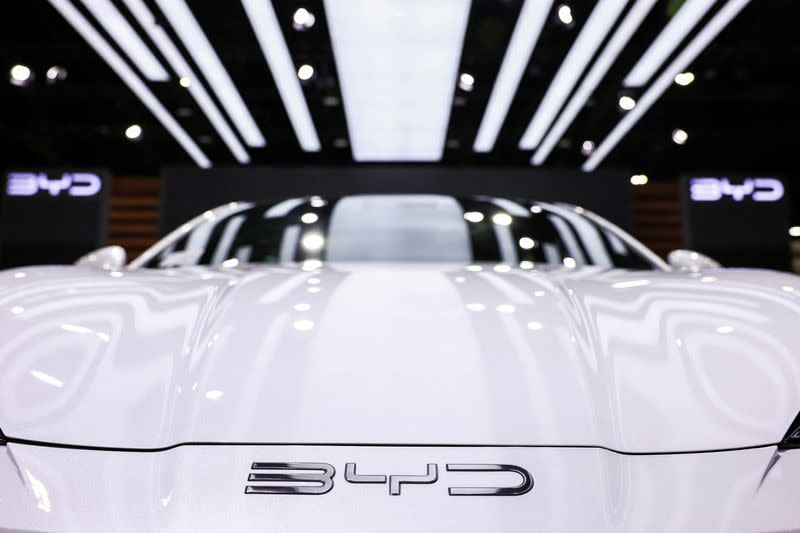China's BYD opens EV factory in Thailand, first in Southeast Asia

By Chayut Setboonsarng
RAYONG, Thailand (Reuters) -China's BYD opened an electric vehicle plant in Thailand on Thursday, the automaker's first factory in Southeast Asia, a fast-growing regional EV market where it has become the dominant player.
"Thailand has a clear EV vision and is entering a new era of auto manufacturing," BYD CEO and President Wang Chuanfu said at the opening ceremony. "We will bring technology from China to Thailand."
The BYD plant is part of a wave of investment worth more than $1.44 billion from Chinese EV makers who are setting up factories in Thailand, helped by government subsidies and tax incentives.
Hong Kong-listed shares of BYD, the world's largest EV maker, climbed 1.6% to HK$235, after hitting their highest levels in a week.
Thailand is a regional auto assembly and export hub, and has long been dominated by Japanese car makers such as Toyota Motor, Honda Motor Co and Isuzu Motors.
By 2030, the country aims to convert 30% of its annual production of 2.5 million vehicles into EVs, according to a government plan.
"BYD is using Thailand as a production hub for export to ASEAN and many other countries," said Narit Therdsteerasukdi, secretary-general of Thailand's Board of Investment, referring to the 10-nation Southeast Asian bloc.
As part of its expansion outside China, BYD is building its first European production base in Hungary.
Set to launch operations in three years, the BYD facility will produce EVs and plug-in hybrids for the European market, where the European Commission is imposing tariffs of up to nearly 38% on Chinese-made EVs.
BYD's China-made EVs will incur tariffs of about 17%.
The sprawling Thai facility, announced two years ago and worth $490 million, will have a production capacity of 150,000 vehicles per year, including plug-in hybrids.
The right-hand-drive EVs manufactured at the plant will potentially allow BYD to circumvent EU tariffs, which are applicable to China-made vehicles.
"We will also assemble batteries and other important parts here," said Liu Xueliang, BYD's Asia Pacific general manager.
Thailand is the largest overseas market for BYD, which commanded a 46% share of country's EV segment in the first quarter and is the third-largest player in passenger cars, according to research firm Counterpoint.
Other EV rivals in the local market include Great Wall Motor, which also has a production facility in Thailand, and U.S. automaker Tesla.
(Reporting by Chayut Setboonsarng, Writing by Devjyot Ghoshal, Editing by Sherry Jacob-Phillips)

 Yahoo Finance
Yahoo Finance 